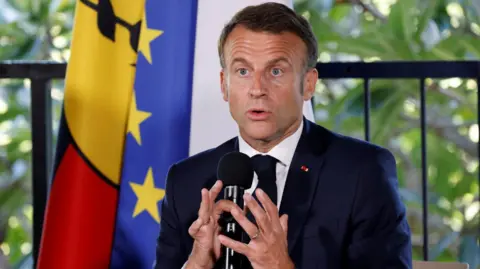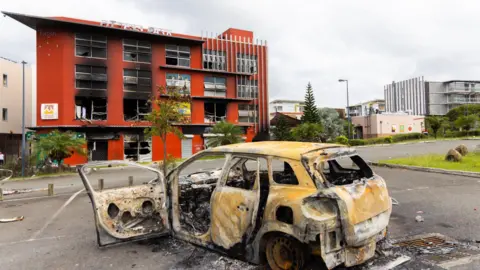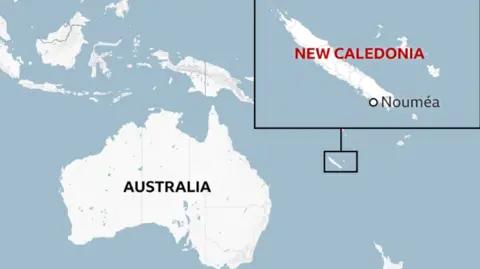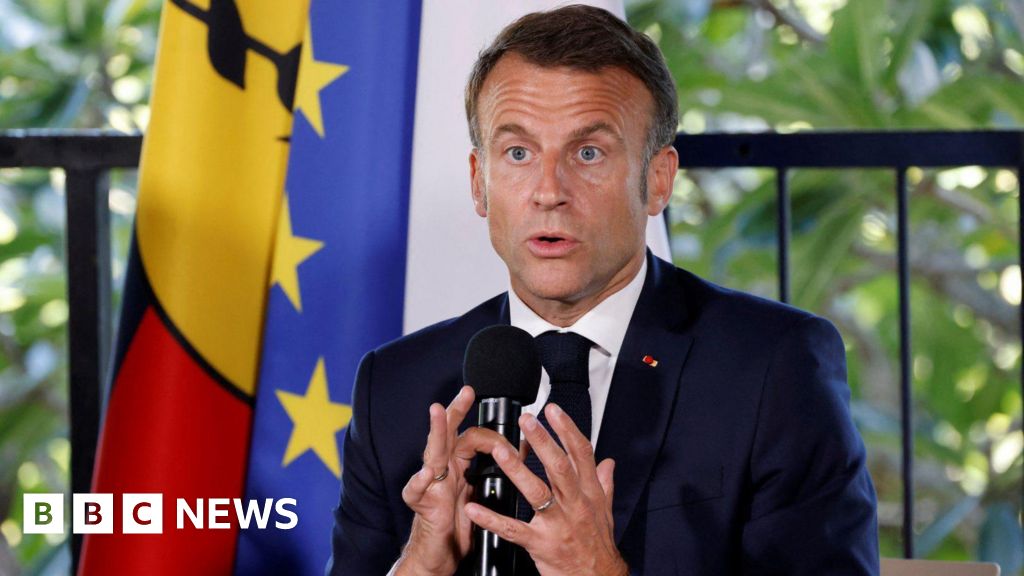 Reuters
ReutersPresident Emmanuel Macron vowed on arrival in the unrest-plagued French Pacific territory that French police forces would remain in New Caledonia “as long as necessary”.
Macron said the 3,000 troops deployed from France would remain in place – even during the Summer Olympics in Paris, if needed.
Six people were killed and hundreds injured, including two police officers, in unrest over a controversial electoral reform proposed last week.
The Kanak indigenous people say their political influence will be diminished if more French residents are allowed to vote in local elections.
There have long been tensions between the central government in Paris and New Caledonia’s pro-independence Kanak people, who make up about 40 percent of the small archipelago.
The archipelago, located between Australia and Fiji, has been French territory since the 19th century. The riots were the worst since the 1980s.
After flying to New Caledonia’s capital Noumea on Thursday, President Macron said he hoped peace, calm and security would be restored “as soon as possible”.
“This is an absolute priority,” the French leader said.
He paid tribute to the victims of the riots during a meeting with local political and business leaders.
The summit was attended by separatist leaders, who said in advance they hoped it would “inject new energy” into discussions with France.
According to BBC Australia correspondent Katie Watson, Mr Macron acknowledged that the most delicate conversations were about politics and the future of New Caledonia, adding that he would have a tough job on his hands .
Police have detained 269 people since the violence began on May 13, and New Caledonia is currently under a state of emergency.
But Macron hinted that the state of emergency may be lifted in the next few days, saying: “I personally think that the state of emergency should not be extended.”
 EPA-EFE/REX/Shutterstock
EPA-EFE/REX/ShutterstockNew Caledonia has a population of approximately 300,000, including 112,000 indigenous Kanak people.
Under the 1998 Nouméa Accords, France agreed to give the territory more political autonomy and to restrict then-residents from voting in provincial and parliamentary elections.
Since then, more than 40,000 French nationals have immigrated to New Caledonia.
Last week, the National Assembly in Paris proposed granting voting rights to French residents who have lived in the region for 10 years.
The measure faces further hurdles as it would require amending the constitution.
The Nouméa Accord allows for three referendums on the country’s future. Independence is denied in all cases.
The first two supported the remainder of France by a slim majority. The third conference, held in December 2021, was boycotted by pro-independence parties because it was held during the coronavirus pandemic.
 Google
Google

